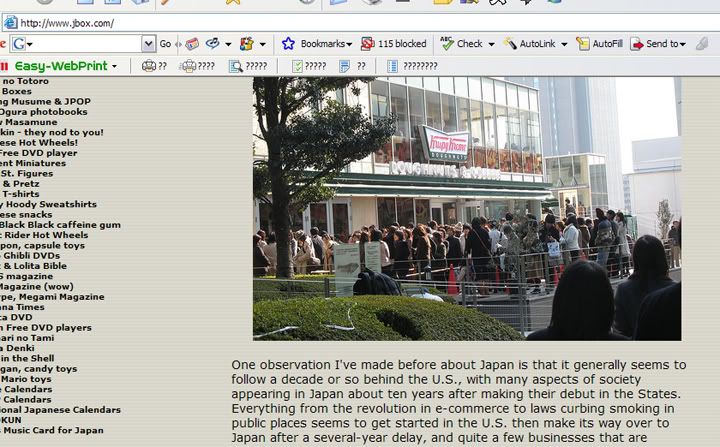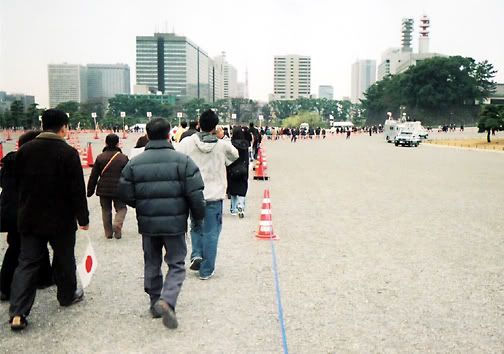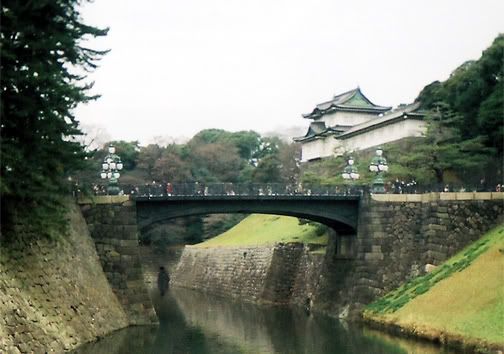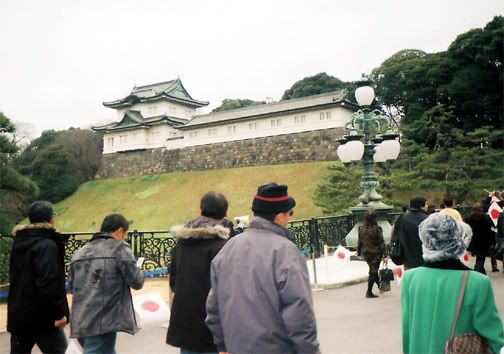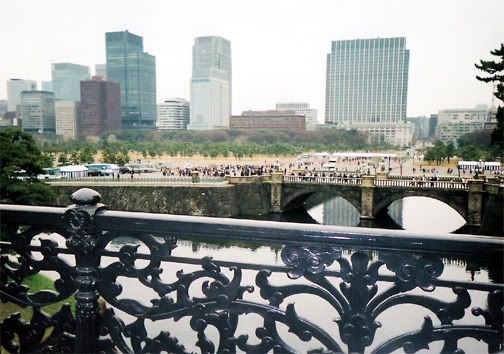When I got to my school Thursday and shouted "Konnichiwa!" to the empty lobby, I heard my boss' voice from his office: "Joel? Did you hear the bad news?"
My definitions of "bad news" usually consist of death, natural disaster, firing, going out of business, either separately or combined. The first thing I thought was, "Oh no, one of our students died in an accident!"
I told him I hadn't heard, and braced myself for something really horrible. He came out of the office and said, "Six Nova teachers were arrested for drugs."
My boss wore a sardonic smile as he told me this, and it was such a relief, I broke out laughing. Nova teachers? Arrested for drugs? That's not bad news- that's hilarious. Sure, it's schadenfreude, and I can admit it. I could care less about what Nova teachers do now that I'm out of the loop, and the very idea of a group of them, ones I don't know and have never met, getting busted for drugs cracked me up.
"Where was this?" I asked. I thought I might hear some familiar names if this was such a huge deal locally.
"Tokyo."
Ah. News about foreigners is often national news.
He told me more details, how he'd seen it on the news the night before. An American had been dealing coke and pot to his fellow teachers, just for their private use, no students involved, and how the news anchor had been outraged that Nova spokespeople didn't even know the names of the six suspects. How could a company not know their employees' names, he asked; he shook his head, chuckled. A massive company like that, the largest in Japan. Even with its size, they're the eikaiwa (big English school chain) people associate with the very idea of eikaiwa. They set the standard.
He couldn't get over it. It seemed absurd to us both.
"The news report said the apartment was very noisy and filthy, with garbage everywhere," my boss said. I could picture it- Nova accomodation much like the two apartments I'd lived in, with 3 oversized guys bouncing off each other constantly, drinking Kirin or Asahi tall-boy beers in cans, smoking pot and snorting coke, a few different female students spending the night there weekly. As my boss added, "The neighbors did not know who lived there."
All foreigners are like that, neh?
According to Japan Today, Errin Valentine, who was arrested in Tokyo last November on drug charges (posssession of cocaine and marijuana... like a common college student), told police he'd bought it for his friends. That's when being a drug dealer dude really looks especially romantic and super-cool: When you're alone in the hands of the police, isolated and eventually give into self-interest and rat out those party friends you shared all those intimate stoned-off-your-asses times together. We're all in this together, dudes, until I get caught!
This led to the arrests of Adam Renwick and 5 other Nova teachers in Saitama. It all goes back to a drug deal in Roppongi on November 19th. My first impression was these were a lot of fresh out of college guys, but Valentine is 32 and Renwick is 36. Old enough to be more responsible and have some common sense. I don't know what brought them to Japan- adventure, fun, interest in the culture, the ease of hooking up- but their stay here is going to be quite a bit different than intended.
Well, the news was hilarious to me when I first heard it.
Now that I've put a face on Valentine and his family, I feel a bit guilty about laughing.
He's more than likely spending a very difficult time in Japanese jail, and his family is probably heartbroken; I can only imagine how mine might've felt if I'd done something so stupid.
And Japanese prison is no joke. Just ask Paul McCartney. Ok, then sometimes it can be a joke. But not for Errin Valentine or the other 6 Nova teachers.
It's not as violent as in the United States, but it's a lot more spartan and disciplined. No prison is a country club- except those white collar minimum security place where you go if you steal multi-millions with paperwork instead of $100 with a gun and even those aren't exactly bed and breakfasts.
Also, if nothing else, it'll add to the stereotyping of foreigners in general and Nova teachers in specific, and if someone can score Voice Room rhetorical points against the Brazilians here in Hamamatsu, I'm sure he or she will. There's already a growing xenophobia here, in a culture that has xenophobia as its historical inheritance.
My boss lectured me and my co-teacher on being careful about who we associate with.
"Even if you are not doing drugs, if you are there when the police come, this is very bad," he said. "You would be released later, but it could give the school a bad reputation."
He had a point as I flashed back to all the times my Nova roommates and our friends were burning one down in the common area, watching
Love Actually or
Harold and Kumar Go to White Castle. I didn't participate or hang out, but we would've all been taken down to the tank together, I guess.
There's nothing like empathy to cure schadenfreude.
